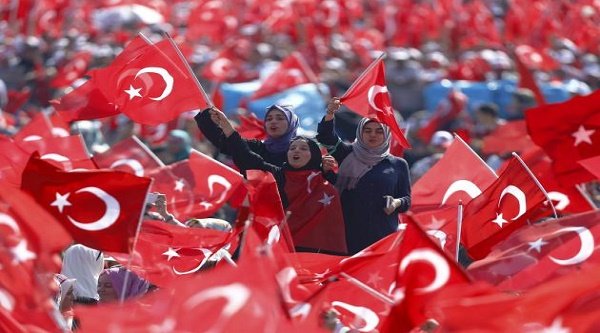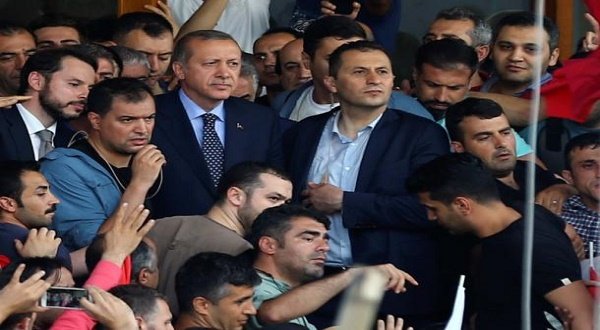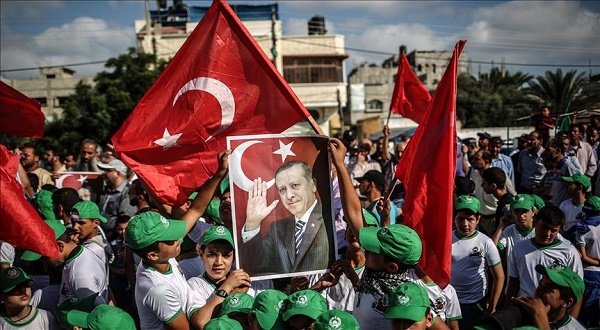
Why the military coup failed in Turkey and why it succeeded in Egypt and the vital lessons that have to be drawn from the recent developments in Turkey
ATIF SHAMIM SYED | Caravan Daily
[dropcap]O[/dropcap]n July 15, 2016, a faction within the Turkish Armed Forces attempted a coup against the elected government and state institutions. The plotters tried to seize control of several key places in Istanbul and Ankara, however, they failed to do so after being confronted, and finally defeated by forces loyal to the state. In the aftermath of the failed coup, the elected president of Turkey, Recep Tayyip Erdogan’s hold on power was further strengthened.
A similar incident occurred around three years ago in Egypt in July 2013, when the army Chief General Abdul Fattah al Sisi removed the elected president Mohamed Morsi from power and suspended the constitution.
Because of the haste and recklessness apparent in the actions of the Turkish conspirators, the coup was nipped in the bud. Now, all of them stand to face the consequences of their actions. President Erdogan declared a state of emergency and promised swift and harsh punishment for anyone involved in the conspiracy.

There are many reason why the coup failed in Turkey but was successful in Egypt. The Turkish plotters were apparently in a hurry. They failed to arrest or kill the president and the prime minister who were both able to address the public and mobilize their supporters. There was no figurehead of the coup around whom they could rally their own supporters. In fact, from the very beginning, it seemed like a botched attempt at seizing power. However, the most important factor that contributed to the failure of the coup was the role played by media outlets, police, state institutions, and above all, the opposition parties.
Turkey has seen several military interventions since the 60s. The opposition knew very well what would happen once the military took over. The long-term impacts of previous military adventures still linger in the Turkish society.
Because of the haste and recklessness apparent in the actions of the Turkish conspirators, the coup was nipped in the bud. Now, all of them stand to face the consequences of their actions. President Erdogan declared a state of emergency and promised swift and harsh punishment for anyone involved in the conspiracy.On the contrary, the architects of the Egyptian coup were more thorough in their approach. They had already presented General Sisi as the figurehead of the coup even before it actually started. Later, after assuming power, when the general faced real challenges on the economic and political fronts, he proved to be less of a superman than was projected to the Egyptian public in place of their elected president.
Opposition parties in Turkey acted rather maturely. They disregarded general Akin Ozturk’s rhetoric and chose to side with Erdogan. When the coup was underway, president Erdgan was able to address the nation on CNN Turk – one of his most stubborn critics – through his iPhone. Erdogan’s address which was broadcast live by the channel played a pivotal role in turning the tide in the government’s favor.
Morsi’s fate was sealed when the opposition parties established an umbrella group, The National Salvation Front, and connived with the plotters to overthrow him. After the ouster of Morsi, The National Salvation Front disappeared from the Egyptian political scene as abruptly as it had popped up only days before the military takeover.
In an irony of all ironies, the liberal, secular and progressive parties ganged up against the Muslim Brotherhood-affiliated president and demanded the army to save them from what they perceived as a democratic demon. As an excuse, they cited Morsi’s exclusionary policies as the main reason for their disenchantment with the democratic process. It will be unfair to say that all of their grievances were fictitious, yet they could have been addressed through meaningful negotiations within a democratic framework. Doing away with an elected president was neither necessary nor justified.

Opposition parties in Turkey acted rather maturely. They disregarded general Akin Ozturk’s rhetoric and chose to side with Erdogan. General Akin Ozturk is the alleged mastermind of the Turkish coup.
In another ironic turn of events, when the coup was underway, president Erdgan was able to address the nation on CNN Turk – one of his most stubborn critics – through his iPhone. Erdogan’s address which was broadcast live by the channel played a pivotal role in turning the tide in the government’s favor. On the contrary, the Egyptian media played a dismal role during the 2013 coup, often resorting to outright lies regarding the number of anti-Morsi protesters. They even broadcast fake pictures of the protests.
Despite some serious differences, and occasional confrontations between the ruling AKP and the opposition parties IN Turkey, the latter stood firmly behind the president throughout the attempted coup. The Egyptian opposition, on the other hand, not only supported the military during the takeover, it also lent credibility to the bloodletting that came afterwards. In one of the historically despicable scenes, the leaders of opposition cheered the fall of the government and chanted patriotic slogans. The former head of IAEA, Mohamed ElBaradei stated that the military coup had rectified the mistake of the 2011 revolution. Even the young leaders of nascent political parties offered their full support to the armed forces. But worst of all was the former leader of the Muslim Brotherhood Abdel Moneim Aboul Fotouh who also came out supporting the army.
On the contrary, as soon as the coup began, the recently deposed prime minister of Turkey, Ahmet Davutoglu rushed to the media and offered his unequivocal support to Erdogan. Davutoglu set aside his personal differences with the president and insisted that the plotters were not attacking the president but the phenomenon of democracy itself.
The Egyptian media exposed itself further when it gleefully announced during the Turkish coup that the military was in control of the state and soon Erdogan will meet the same fate as Morsi. Fortunately, this did not happen. Yet, when after, the coup Erdogan announced that he will seek parliament’s approval to reinstate the death penalty, the Egyptian media likened him to a fascist and a dictator. They conveniently forgot that Egyptian political leaders – some of them very prominent – had demanded summary executions of Brotherhood members rather than fair trials and due process.

